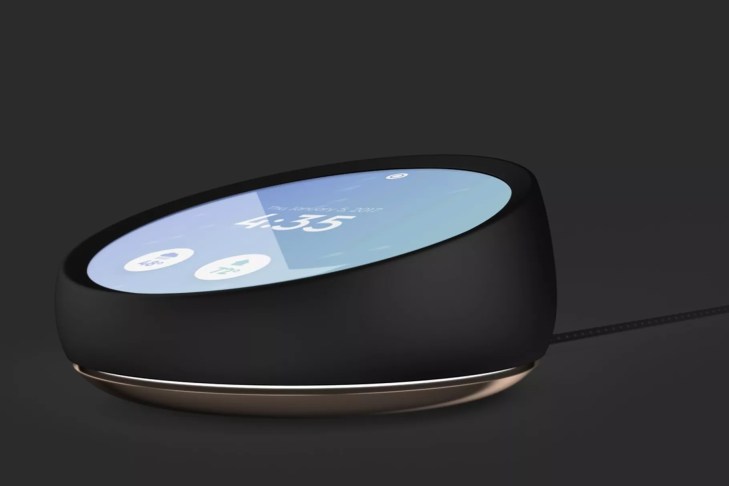The next great smartphone battle isn’t about screens or batteries or cameras. In fact, it’s not really about hardware at all. It’s a knock-down, drag-out fight for the heart of the connected home. Apple, Google, Amazon and Samsung have each planted flags with different approaches, but none have really had the opportunity to build a handset from the ground up with that sort of connectivity at its center.
That opportunity appears to be a driving force in the launch of Andy Rubin’s new Essential phone. And while this morning’s news felt as much like a teaser as a proper announcement, the startup has clearly made the connected home a key component of its vision. The Essential handset will be launching alongside its very own smart home hub, named, of course, the Essential Home.
In fact, the idea of serving as a smarthome hub appears to be a driving force in the launch of the phone and its companion hub. In a post that’s simultaneously informative and frustratingly buzzwordy, Essential’s Head of Engineering Manuel Roman writes about Home’s operating system:
Ambient OS provides a set of services and abstractions that enable the development and execution of applications that run in the context of your home. With Ambient OS, your home is the computer. Ambient OS is aware of the physical layout of your home, the people that live in it, services relevant to both your home and the people within, and devices.
A Wired profile of Rubin this morning shed a similarly broad light on the company’s connected ambitions, writing about Essential’s plans to be “the open platform that will power the billions of phones, watches, light bulbs, and toaster ovens about to come online.”
Rubin will hopefully shed some light on what precisely those words mean in that order when he takes the stage at the Code conference this evening, but the keys to how the company’s OS and how its Echo competitor aim to one-up the incumbent competition appear to be two-fold. First, embrace open-source. Second, develop an assistant capable of learning as it grows.
Open sourcing was a cornerstone of Rubin’s play with Android, and the company appears to be even more committed here, thanks to the (for now) absence of interference from a corporate overlord like Google. Both Amazon and Google have embraced developers since launching their own smart hub plays, but Essential seems to be hoping that offering that sort of openness from the outset will make it that much more appealing to smart home companies – similar to what Samsung has promised (but not yet delivered) with Bixby. By all accounts, Bixby is still very much a work in progress.
Ambient promises another still unfulfilled Bixby promise: contextual learning. Again, how this will play out over time has yet to be seen. It’s a feature practically everyone in the space is promising, but has yet to fully deliver on, a smart assistant that learns and is able to tailor itself to a user’s habits.
“Key to Ambient OS is the belief that people should always be in control,” Roman writes. “To this end, it does not try to make your home smart by anticipating what you need. Instead, as it learns from people, it can suggest certain behaviors but in the end people decide whether or not use them.”
Like most everything about Essential at the moment, these ideas feel pretty pie in the sky. There are just too many factors at play. For starters, even Google appears to be having trouble breaking in here, with Home adoption lagging. Amazon’s lock on the space has been hard to break, and the proliferation of its devices has had a cascading effect. And then there’s the question of what Apple has up its sleeve for WWDC this year. How large an impact can a startup make in an already packed market that’s about to get even more crowded?
Essential is asking users to buy into a new phone and smart home hub from a new company, with the promise that it will evolve and get better over time. Even with a track record as solid as Rubin’s, that’s a lot to ask. Taking full advantage of the home offering will also require an already well-connected home, without a smart home hub already in play (or at least the willingness to buy another product with similar functionality.)
If it’s going to find that success, Ambient/Essential will have to prove that it’s more than yet another not-an-Echo capable of answering basic questions and turning on light switches. And even if Rubin wows the crowd tonight, that kind of development takes patience and time — neither of which are luxuries often afforded to even the most stacked startups.
